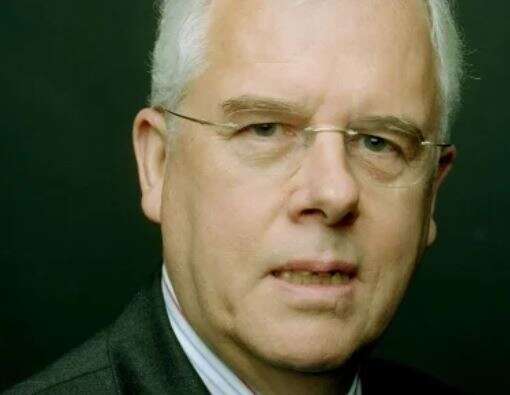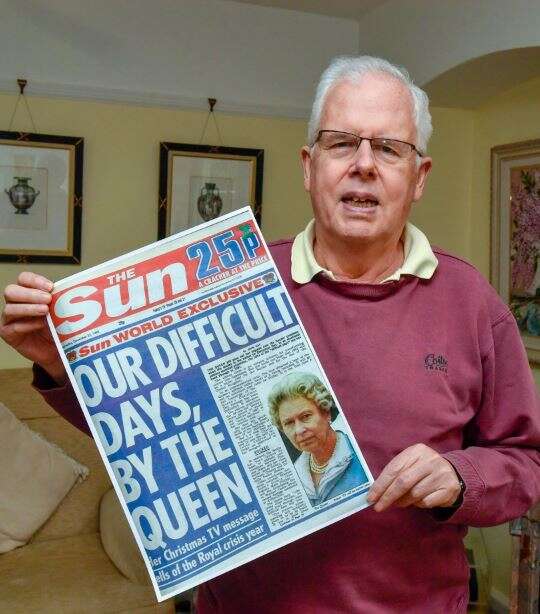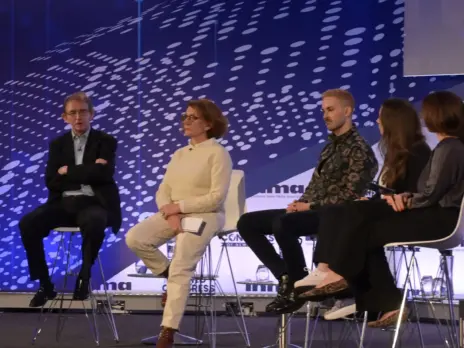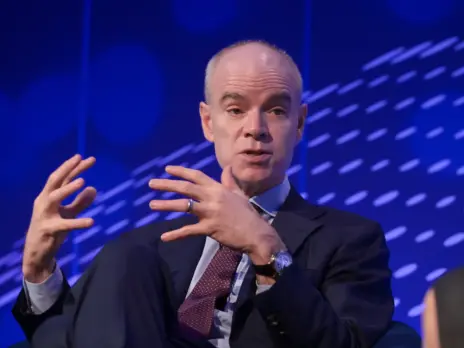
Former Sun chief reporter John Kay died at the weekend, prompting a huge outpouring of appreciation from former colleagues.
Kay retired from The Sun after a 48-year career in journalism in 2015 after being acquitted of conspiracy to commit misconduct in public office under Operation Elveden. All 33 journalists arrested and/or charged under Elveden who pleaded not guilty were acquitted.
But some 32 public officials were convicted, including Kay’s Ministry of Defence source Bettina Jordan-Barber.
Friends said Kay never recovered from the Elveden trial and the fact that his source was exposed by the company. Many also spoke today of his kindness, generosity and prodigious scoop-getting abilities.
Some said his subsequent career was all the more remarkable given the breakdown he suffered in 1977 and his conviction for manslaughter by reason of diminished responsibility.
John Kay’s early career
Kay’s father was managing editor of the London Evening News and he initially had ambitions to become a vet, but after attending Durham University he secured a job as a reporter on the Newcastle Journal before joining The Sun in 1973 to cover industrial relations.
Scoops secured during his Sun career are far too numerous to fully list here, but they included:
- The first picture of Moors murderer Myra Hindley outside prison
- The revelation that black twins were being born to a white couple after an IVF mix up
- News that MI5 chief Stella Rimington was writing a book
- Chelski: The news that Roman Abramovich was buying Chelsea Football Club
- News in 1987 that Prince Edward had quit the Royal Marines during training
- The 2000 revelation that an MI5 spy had a lost laptop containing secret information while waiting at a station.
The story he was most proud of was the publication in 1992 of the entire Queen’s Christmas speech in advance (it was the year of her famous annus horribilis when there was a fire at Windsor Castle and Charles and Diana split up).

John Kay (Credit: The Sun)
How Kay secured the Queen’s Christmas message
Here a former Sun news editor and managing editor picks up the story:
News editing The Sun in the week before Christmas 1992 was not a lot of fun, writes Graham Dudman.
Too many festive parties and not enough clear heads meant the newslists were exclusive-free zones until Johnners came to the rescue.
JK had spent most of the day on the phone at his usual seat next to the art desk in the windowless newsroom on level 6 [at News International’s Wapping HQ].
He suddenly put the phone down, jumped up from his chair and with three tugs on his belt began striding towards the newsdesk holding his mini-tape recorder up high.
“You must listen to this,” he announced with a huge smile on his face.
We went into the little office behind the desk, shut the door and Johnners pressed play.
A woman with a posh voice started talking about what a terrible year she and her family had endured.
“That’s amazing. It sounds just like The Queen,” I told John.
“You are listening to The Queen’s Christmas message,” beamed JK.
I was stunned.
This wasn’t just any Queen’s Christmas message, it was the message from her ‘annus horribilis’: Windsor Castle fire, Charles and Di’s separating, Andrew and Fergie also splitting, plus Princess Anne’s divorce.
Most of Fleet Street was desperate to find out what The Queen would say in her annual address. Nothing had been released by the Palace. There were no embargoed tapes or transcripts.
But John Kay had a copy. Someone had played him a tape of the broadcast down the phone.
Next day, John’s world exclusive led every TV and radio news bulletin and set the agenda for every other paper.
A right royal triple belter from Britain’s greatest reporter and scoop machine.
We never knew who John’s source was. Decades later, he revealed it was a mole at BBC local radio but their identity remained secret.
As I moved from being a fellow reporter to the news desk and later managing editor, John was always supportive and offered priceless advice.
When it came to dealing with tricky staffing issues, John was there to act as mediator and advisor.
John Kay was a class act. In many ways, he was The Sun newsroom. He has left us far too soon.
Manslaughter conviction
One aspect of Kay’s life was never mentioned at The Sun but cannot be excluded from an account of it. In 1977 he had a mental breakdown and killed his wife Harue before trying to take his own life. He pleaded guilty to manslaughter on grounds of diminished responsibility and was sent by a judge for treatment at a psychiatric hospital before being taken back afterwards by The Sun.
According to a report in The Guardian of the case, Kay was “cracking up” over the prospect of promotion to be The Sun’s industrial editor.
He reportedly told police: “My mind seemed to be taken over by voices. I seemed possessed.” A psychiatrist told the court it was a story of a soul in torment.
He had been married for a year to 27-year-old Harue and the couple were said to be “idyllically happy”.
He was travelling back from the TUC conference in Blackpool when he was said to be in a black depression and hearing voices. He is said to have told colleagues: “They all know that I have cracked. I have lost it, my career is in ruins. I am not able to cope any more.”
Kay was taking a bath with his wife when he drowned her and then repeatedly tried to kill himself and was found by police after crashing his car at 80mph, the report in The Guardian states.
Kelvin MacKenzie: ‘John was thrown under the bus by Murdoch’
His editor from 1981 to 1994 was Kelvin MacKenzie. Here he pays his tribute to Kay, which includes an unflinching assessment of News Corp’s role in Operation Elveden and the end of Kay’s career.
I asked John Kay to pop in to see me, writes Kelvin MacKenzie. His splash in The Sun that morning had gone off like a rocket. Questions in the House, a major inquiry at the Ministry of Defence, not to mention the bed-wetters in the management weeping quietly in the corner.
He was in an ebullient mood. I pointed out that the story had dropped me right in it. He said there was some good news. What, I asked, could that possibly be?
He said: “You know there’s an official investigation.” I said I did know that. Well, said John, the man running the investigation is…….. the chap who gave me the story in the first place. The inquiry, he said, won’t go anywhere. And so it proved.
Another winner for John Kay, the greatest Fleet Street story-getter of all time.
He spent four decades on The Sun most of them as chief reporter and if I was paid £20 for every time his phrase “I’ve got a belter” echoed round the newsroom I could have bought The Sun by now.
There was so much more to John than just being The Sun’s finest. He was also a father to the newsroom. Always encouraging the youngest reporters, always giving advice, always offering a shoulder to cry on.
He loved his gossip but what you could never prise from him was the source of his stories.
Disgracefully Rupert Murdoch did that when he ordered the details of payments made to public officials by Sun journalists should be handed to Scotland Yard.
John was among 22 staff that Murdoch threw under the bus to save his own skin when threatened with a corporate charge which would have forced him out of his own company. In my years of running The Sun Murdoch never asked where John’s fantastic tales came from; he was only interested that we had them so we could sell more papers, make more money and stuff the opposition.
All 22 were cleared, but what broke John was one of his best contacts over the years ended up being jailed.
The trial took its toll on John. He spent his last years in a nursing home in Hertford. As guilt money Murdoch paid £25,000 towards the care costs.
There will never be another reporter like John who could bring in such astonishing stories every day. The Sun is poorer without his talents and we are all poorer that he no longer shares his energy and enthusiasm with us.
Operation Elveden
Kay first met MoD official Bettina Jordan-Barber in 2003 when she called The Sun to check whether it was running a story about an affair between two military officers.
She would go on to receive £100,000 for information leading to the publication of 69 stories over an eight-year period.
Kay said he was not interested in “tittle-tattle” but that the paper would pay for serious news such as equipment shortages and bullying.
Kay was charged alongside three Sun colleagues with conspiracy to commit misconduct in a public office.
He said that in a 50-year-career in journalism he had no idea such an offence existed or that Jordan-Barber would be considered a public official. Before Elveden, such a charge had never been used against journalists and it did not feature in media law manual MacNae’s Essential Law for Journalists.
Operation Elveden was prompted by News Corp’s decision to hand over confidential email and payments information to the Met Police in 2011 in the wake of the News of the World hacking scandal.
Kay and his co-defendants were cleared (as were all the journalists who faced trial under Elveden).
Kay and many of his Sun colleagues never forgave News Corp for taking the decision to release information which led to so many sources being jailed.
Jordan-Barber, then a 42-year-old mother of two, was jailed for 12 months in 2015. She came across confidential information in her job providing briefing notes to pass on to ministers and the MoD press office.
Stories included a bullying allegation against a sergeant major branded “the beast of Sandhurst”, the revelation that in 2005 an army major was killed by an IED while travelling in an army snatch Land Rover and news of the resignation of the head of the army bomb disposal team amid concerns about staffing and equipment levels.
Former Sun deputy editor Fergus Shanahan stood trial with Kay at the old Bailey alongside Geoff Webster and Duncan Larcombe between January and March 2015. Here Shanahan pays tribute to Kay:
John had already semi-retired from News UK before his arrest in 2012 but had been persuaded by Rebekah Brooks to carry on beyond retirement age because of his immense talent and reputation, writes Fergus Shanahan
After we were all cleared in March 2015, John settled with the firm and went into quiet retirement with his wife Mercedes, to whom he was devoted, at their home in North London.
A few years later Mercedes died. John paid her a wonderful tribute at a packed service and from then on went downhill, eventually becoming a virtual recluse living full time in a nursing home.
He was just as well known for his kindness in mentoring and encouraging young journalists many of whom owe their careers to his guidance.
Chief among these was Will Lewis, talent-spotted and nurtured by John [when Lewis was a young reporter on The Sunday Times], and who eventually, to John’s immense pride, became Telegraph editor.
Lewis returned to News UK and was put in charge of the internal ‘payments for stories’ inquiry which saw John and his most important confidential contact handed over to the police. The contact was jailed. John was cleared of illegal payments but never recovered his old swashbuckling personality and sunk slowly into a sad twilight.
John was hugely loved by his colleagues and hero-worshipped by younger reporters for whom he was their idol.
[Lewis defended his role heading up News Corp’s management and standards committee in 2017 saying: “The company faced an existential threat and it has a moral purpose to speak truth to power.”]
Andy Wilks, who worked at The Sun from 2000-2004, said: “On my first shift I was bricking it. John was the first to introduce himself, show an interest in where I’d come from and ask what I was working on. Incredibly generous with advice and help. A really decent man.”
Phil Dampier worked at The Sun from 1981 to 1991 becoming the West Country District man and then royal reporter. He sat next to Kay in Bouverie Street and Wapping:
When I first arrived in Fleet Street it was pretty daunting but John always helped newcomers.
In those days we had no mobile phones and there was a hard-drinking culture.
We would pop out for a ‘heart-starter’ sometimes as early as 10.30 to The Sun’s ‘local’, the upstairs bar of the Tipperary known as the top of the Tip.
His first advice to me was to leave my jacket on the back of my chair so the news editor would know we were in the Tip, not out on a job, and he could get hold of us if a story broke. That was the accepted code!
We were still using typewriters and the noise and atmosphere was incredible.
When the first computers came in we didn’t have enough and I had to share one with John.
The only time there was friction between us was when he had finished one of his legendary telephone interviews and was desperate to get onto the computer to write up his story, which was often the splash.
Are you going to be on there much longer Dampers – hurry up!”
I can’t begin to describe how much I learnt from him. And he would help out on your stories as well.
On one occasion we had a tip a top GB athlete had spent the night in a notorious sex club in Barcelona the night before a meeting and even got on stage with naked performers.
As he heard me say to a Spanish official ‘Do you speak English’ John grabbed the phone off me, tutting and began his own interview.
He spoke perfect Spanish because his beautiful wife Mercedes was from Madrid.
Soon he had cracked it.
‘He says it was undoubtedly the Baghdad club’
Ask him what goes on there?’
He says virtually anything you can think of – oh, except anything to do with animals.
“Why is that John?’”
He says the Spanish RSPCA just won’t tolerate it!
My favourite memories of John were lunches, either at his beloved RAC club or the Hungarian Gay Hussar restaurant.
I also took him to Chelsea v Arsenal matches (I was Chelsea he was a Gunner) where we would lunch before the game.
He had a habit of ordering drinks and food for you, deciding what would be best on the day.
He introduced me to Negroni cocktails, and after a bottle of wine, walking to the game, he would always say: “What a great day out – and whatever the result we’ll still be friends!”
Freelance journalist Rob McGibbon first met Kay in 1986 when he started shifting on news at Wapping. He said: “I met John during my first nervous shifts at Wapping in late 1986 and got to know him well over the next few years. I will never forget how supportive and encouraging he was to me in those earliest days. He was like that with all novices.
“The Sun back then was a brutal and unforgiving place, but John always had time to give you a steer on a story, or help out with a contact. He was always generous with his advice.
“Watching John rattle out a story under the most intense pressure nearing press deadline was a stunning sight. He was a true legend who was always at the top of his game.
“When Roy Greenslade became editor of the Mirror John was ready to leave and join him. Kelvin [MacKenzie] was so panicked at the prospect of losing his star man that he immediately gave him a massive pay rise and a company car. John was devoted to The Sun and gave so much of his life to the paper. It was so sad to see what happened to him in recent years. He deserved better.”
Former Sun editor Stuart Higgins told Press Gazette: “John Kay was the greatest story getter I ever worked with. His enthusiasm and familiar description of a cracking story as a ‘belter’ inspired the Sun newsroom, as well as generations of great reporters following in his giant and elegant steps. He leaves an empty page one but his archive of ‘belters’ are testimony to his unique brilliance. Rest in Peace, Johnners.”
Former Mirror chief reporter Matthew Drake said: “I remember the first time I saw him returning to Fortress Wapping – when I was a reporter on the News of the World – with a post-lunch spring in his step and scoop in his back pocket. A dapper doyen of the trade dishing out sage advice to youngsters. Sail well, Johnners.”
Express deputy features editor Matt Nixson said: “We met when I was a News of the World exec and he was the Sun’s chief reporter – and many on the Sun side at the time were deeply suspicious of, and competitive with the NotW – but he was unfailingly charming, friendly and went so far as to suggest contacts, introduce me around at his club (the RAC in Pall Mall) and invite me to lunches and drinks with a vast array of people, from Fleet Street veterans to high-power contacts.
“His lunches at the RAC Club were legendary as was his enthusiasm for his trade and The Sun and general joie de vivre. Unfailingly courteous, kind and a big believer in the next generation of reporters and readers. He really was a one-off.”
The Sun devoted two pages to news of Kay’s death yesterday.
Sun editor-in-chief Victoria Newton said: “The word scoop was invented for John Kay – Fleet Street’s finest-ever reporter.
“He inspired generation after generation of young reporters with his endless enthusiasm, wisdom and incredible work ethic. Rest in peace, Johnners.”
Email pged@pressgazette.co.uk to point out mistakes, provide story tips or send in a letter for publication on our "Letters Page" blog






